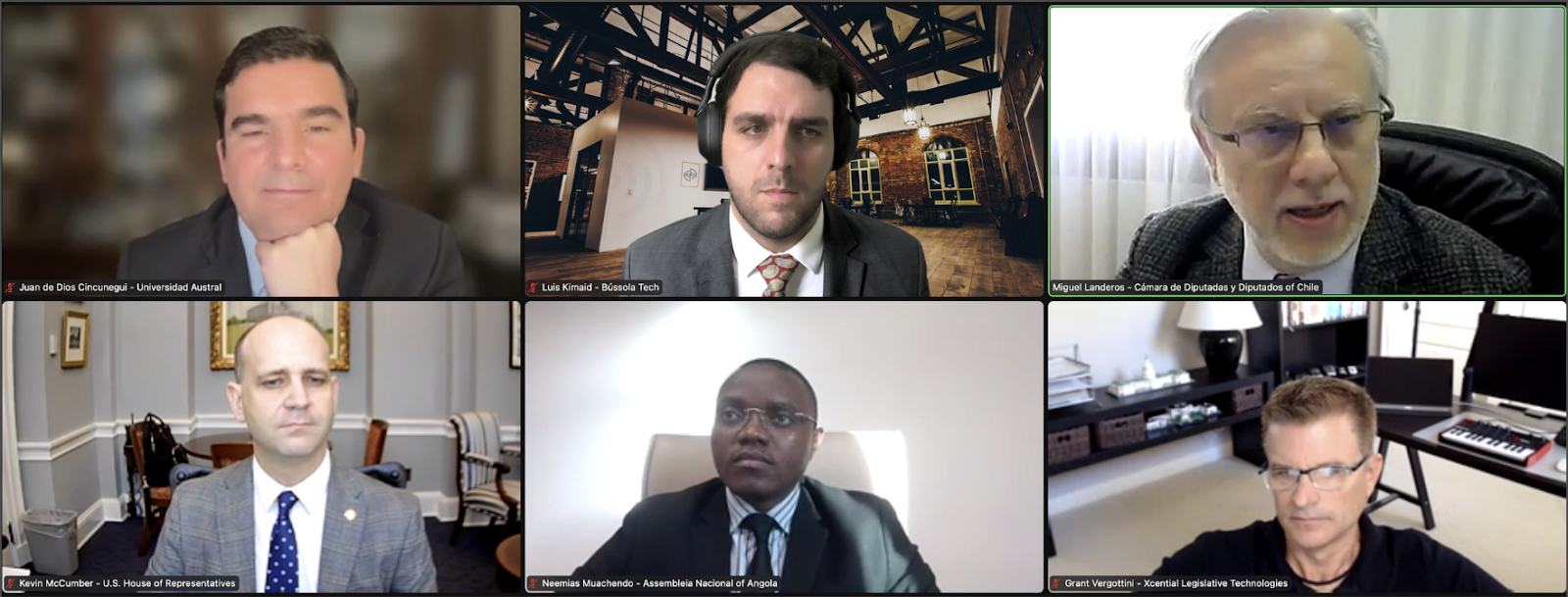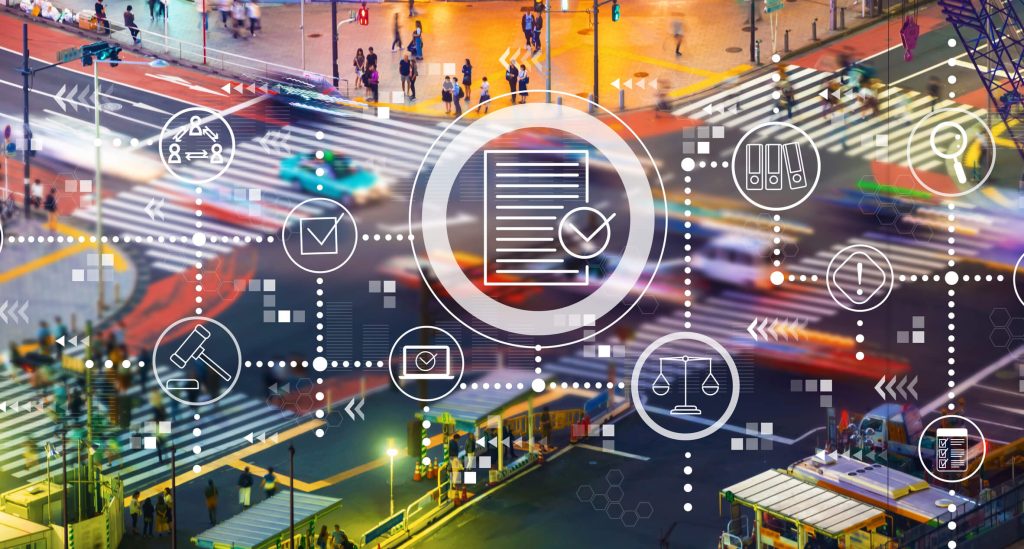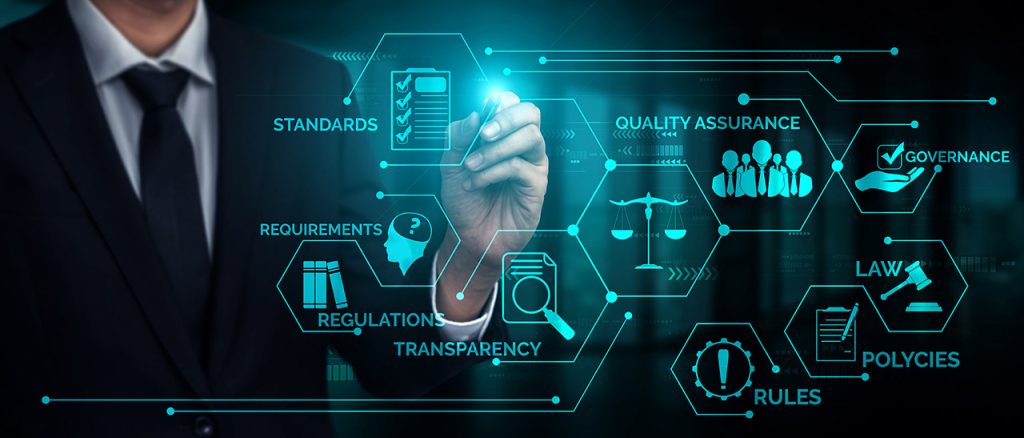Artificial intelligence, workflow innovation, and democratic progress highlight global talks on modernizing democracies
The modernization of our democratic legislatures at all levels of government is happening across the globe. But in true democratic form, it is messy, uneven, independent, and necessary.
Leaders of federal, state and local governments should be paying attention and learning from those who are experimenting with emerging technologies. From municipal CIOs to federal modernization leaders, we must engage or risk being left behind by corporate interests.
Bussola Tech is a global Think Tank helping thought leaders exchange ideas and collaborate to improve the outcomes of our democratic institutions as they evaluate and adopt emerging technologies.
The organization assembles panels of legislative process experts, including parliamentary counsels, clerks and technology professionals, from all around the world. These experts take part in in-person and online discussions, as well as conducting research to address today’s most urgent legislative technology topics.
As Lorna Stark pointed out in a recent KPMG LLP report, “Emerging technologies create extraordinary opportunities for governments to enhance how they fulfill their missions. But governments will need to continue the pace of modernization by adopting and embracing new technology, or they risk being left behind as the private sector rushes forward.”
Federal, state, and local governments across the world are today engaged in modernization efforts. But there is no top-down approach or broad-based best practices for government leaders to follow; each city, state, and federal government picks its own path.
Sharing what works, where we can lead, when we can follow, and how other Parliamentary leaders are innovating is useful. Bussola Tech has been gathering such leaders (focused on modernization and digital transformation) for several years to create that thought leadership for all of us.
“A digital transformation strategy must always be mindful of this characteristic to move forward with the institution’s modernisation without offending those traditions nor upsetting the internal balance of power,” said Luis Kimaid, executive director of Bussola Tech. “This serves to say, legislatures are not averse to digital transformation, but it has a particular way to move forward.”
This “particular way” is relative to each country, its circumstances, and its citizens. But learning from one another enlightens the path for each.
The work going on at Bussola Tech is an international movement. Leaders from around the world are collaborating on models, technologies, standards, and risks.
We want to highlight some key discussions in order to encourage your involvement.
International Collaboration
Bussola Tech organized and hosted “LegisTech: The Commonwealth Community of Legislatures” as a virtual event Jan. 25 – 26, 2024. Participants included government officials from Canada, USA, South Africa, Zambia, Nigeria, Ghana, New Zealand, Malaysia, Brazil, UK, and thought-leaders from the private sector as well.
The session presented a unique opportunity for exploring how innovative technologies, particularly in the realms of Artificial Intelligence and accessibility, are shaping the future of parliamentary operations. These types of sessions are regular events by Bussola Tech where you’ll learn that democracies across the world share the same pressures and opportunities.
Artificial intelligence as a Focus
Xcential CEO Grant Vergottini participated in the discussion around “Preserving the Legislative Procedures in Emergence of AI,” along with Kevin McCumber (Clerk of the US House of Representatives), Miguel Landeros Perkic (Secretary-General of Chamber of Deputies of Chile), Neemias Muachendo (IT Director and the Representative of Mr. Pedro de Neri, Secretary-General of the National Assembly of Angola), and Juan de Dios Cincunegui (University of Argentina).
The panel discussed how AI will augment decision making alongside traditional research and data-driven recommendations. The outstanding question is how to preserve the quality of deliberations while using the speed and generative capabilities of AI to provide data-driven insights.
To accomplish this goal, these thought leaders explored procedural and regulatory safeguards to allow AI to be integrated at various levels of government, where the complexities are vast. Panel members focused on real-world trials of AI to improve the quality of data and create efficiencies.
Another discussion hosted by Bussola Tech highlighted the work now in progress at the Hellenic Parliament of Greece where AI is being carefully introduced to augment legislative process automation and enhance collaboration.
What was clear throughout the conversation at Bussola Tech is that Parliaments and Subnational Legislatures (State, Provincial and Local) are moving forward with AI. But they are being careful to consider the need to protect tradition and fundamental transparency. These leaders know we must be ready to take advantage of what AI can bring to improve processes and data.
Bussola Tech provides access to these publications, and we highly recommend parliamentary innovation professionals learn from and join in the conversations.
Work on Legislative Drafting & Workflow
Bussola Tech continues to highlight innovation in legislative drafting and workflow to create efficiencies, but even more importantly, precision.
Recently Bussola Tech highlighted the work being done for the US House of Representatives by Xcential in an article titled, “Evolving Technologies in the Legislative Process: A Case Study on The Comparative Print Suite in the U.S. House of Representatives”.
The article highlighted the new technology’s potential impact on the legislative process.
“One of my hopes with this tool is that the ability to verify changes in documents and proposed changes in law will result in improved negotiations and better collaboration throughout the legislative process,” said Wade Ballou, the Legislative Counsel of the U.S. House of Representatives.
“The Comparative Print Suite is a transformative platform for greater transparency and accuracy in lawmaking,” said Mark Stodder, president of Xcential Legislative Technologies.
“With the click of a button, users will be able to clearly see, as never before, how legislative language changes through the process and the impact of that language on existing law. This is a huge change from the painstaking and lengthy manual ways of before. The Xcential team was honored to be able to take on the challenge of developing the Comparative Print Suite technology in partnership with the House Clerk’s Office and the Office of Legislative Counsel.”
This collaboration between Xcential and the US House of Representatives creates clarity and precision, both of which lead to informed collaboration.
Why does this all matter?
Why should democratic governments and us citizens care about legislative innovation? We know democracy is messy and sometimes slow.
Effectiveness
When we pass new laws, a fundamental principle is to avoid unintended consequences. For legislative analysts working on recommendations, consequences of drafted bills, and potential unintended consequences, tools like AI have the potential to drastically improve their abilities to provide data-driven recommendations. Efficiency is great, but the real effectiveness of our laws has a much broader and deeper impact.
Innovations like the Comparative Print Suite demonstrate that clarity and precision can lead to better collaboration, resulting in better outcomes for all citizens.
Corporate Control
Our governments are intertwined with corporate technology, and therefore cede some control to their private motives and direction. By implementing emerging technologies like AI in responsible and methodical ways, our governments learn and reduce the risk of being behind the curve. Being out front and innovative ensures that governments see the emerging risks along with the emerging benefits of new technologies.
Get Involved
The thought-leaders represented at Bussola Tech are balancing the protection of our democratic processes and traditions with the emerging world of new technologies and artificial intelligence.
Democracy is messy, but thanks to Bussola Tech there is consistent collaboration on the future of democracy’s important institutions; they provide a much needed compass.
Xcential encourages thought-leaders from all levels of government to engage in the conversations at Bussola Tech.



